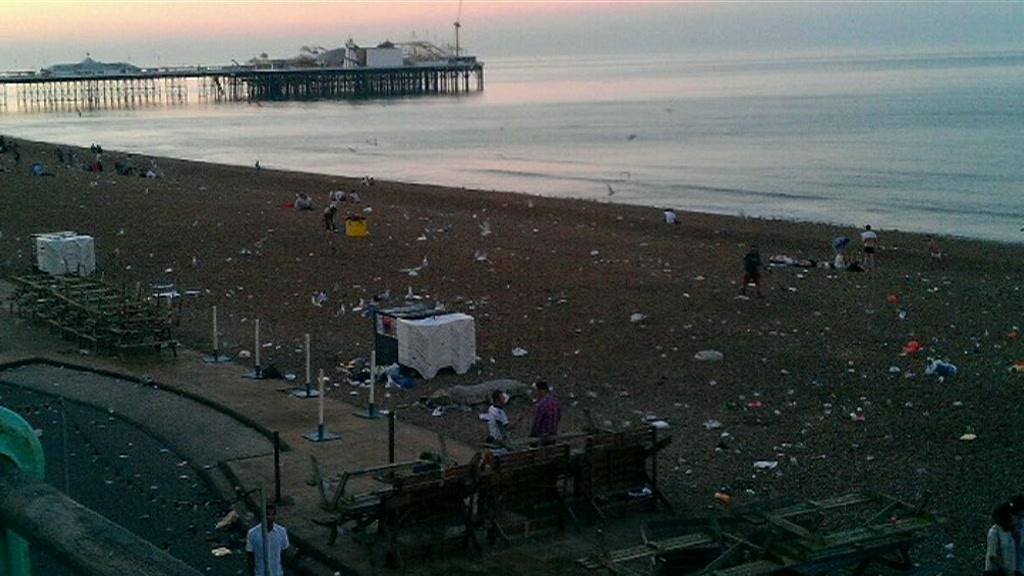Brighton beach: Call for volunteers as polystyrene balls wash up
- Published
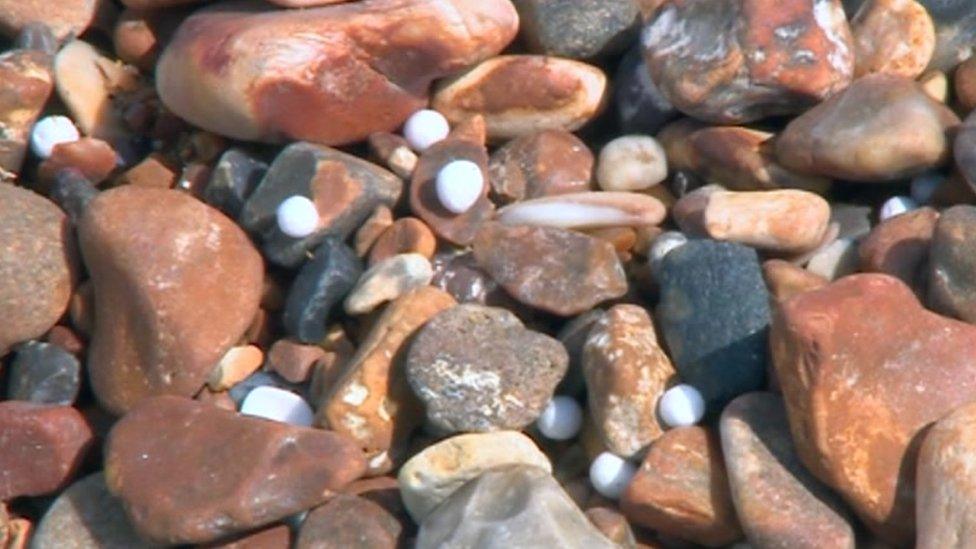
The small balls have blown across the beach and mingled in with the sand, shingle and stone
A campaign group has issued an appeal for people to help clear polystyrene balls which have washed up on a beach.
Hundreds of thousands of tiny balls have been swept ashore on Brighton beach, sparking fears over local wildlife.
Pollution contractors were brought in, and visitors and swimmers have began helping with the clean-up.
It is believed the balls may have come from a pontoon off the Kent coast that was damaged in bad weather last month.
The tiny balls are drifting across more than a mile of beach.
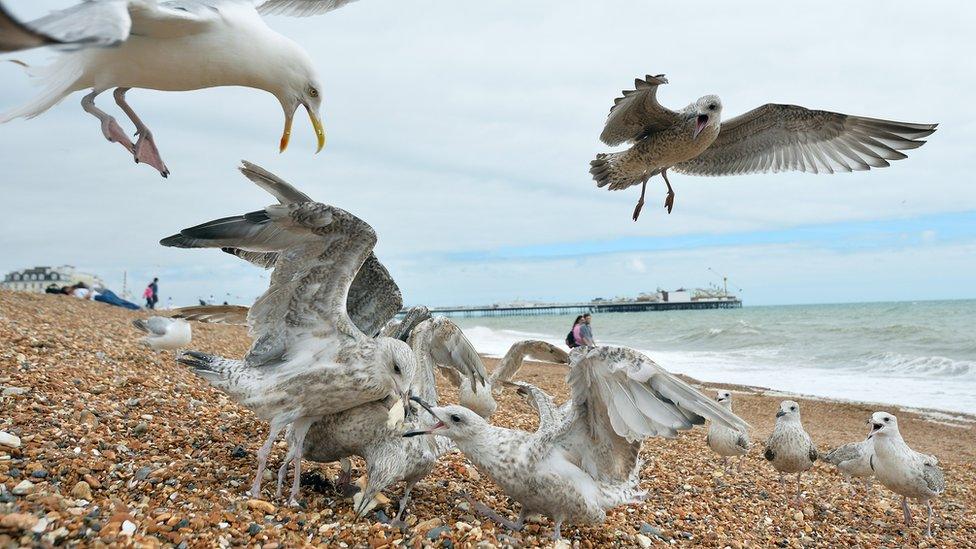
Seagulls are a common sight on Brighton beach
Environmental campaigner Coral Evans has urged beach visitors to help with the clean-up operation.
Ms Evans, from Leave No Trace Brighton, a community group of local people who take action to protect the area from litter, said a number of volunteers - including swimmers - have already responded to the call.
Some have helped collect some of the plastic using sieves to separate them from the sand.
Ms Evans said: "We've got hundreds and hundreds of thousands of these little polystyrene balls.
"They've blown westwards, they're in the shingle and they've sunk down. They're everywhere."
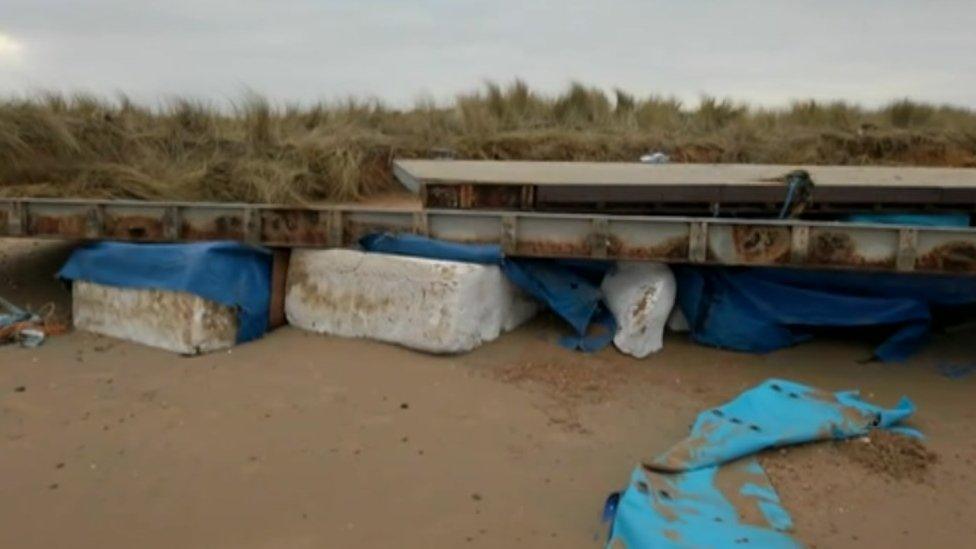
This polystyrene pontoon off the Thanet coast was damaged by bad weather in March
Phélim Mac Cafferty, leader of Brighton and Hove City Council, said: "The other side of these balls and other single use plastics is they're carcinogenic, and of course they stay there for a very long period of time so their damage is untold."
The council is in talks with environment clean-up experts on how best to remove the balls.
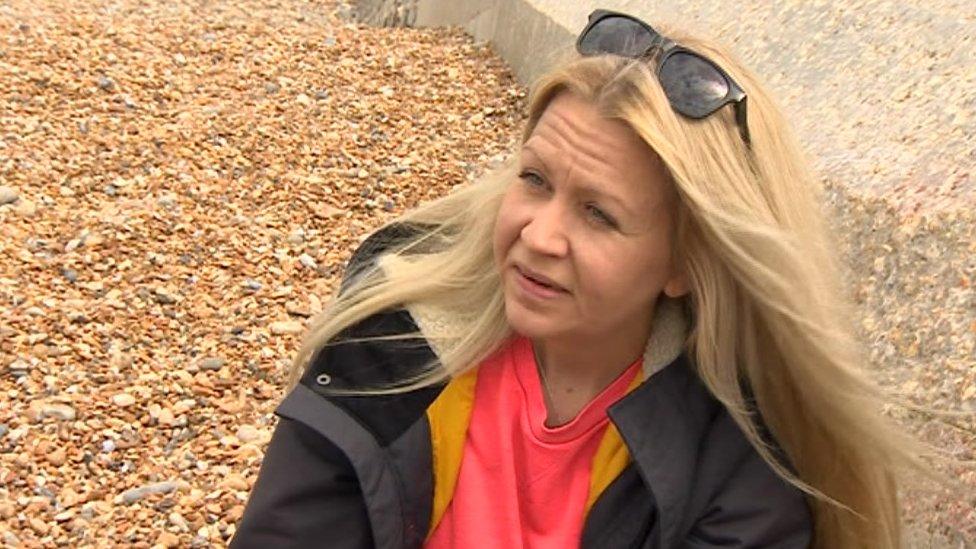
Coral Evans set up Leave No Trace Brighton
A council spokeswoman said: "The situation is very upsetting. Unfortunately there is no easy, mechanical way to clear them up.
"The impact of single use plastics on the marine environment is now well-known. This is why we are committed to tidying up the beach as soon as possible."

Follow BBC South East on Facebook, external, on Twitter, external, and on Instagram, external. Send your story ideas to southeasttoday@bbc.co.uk, external.
- Published8 April 2021
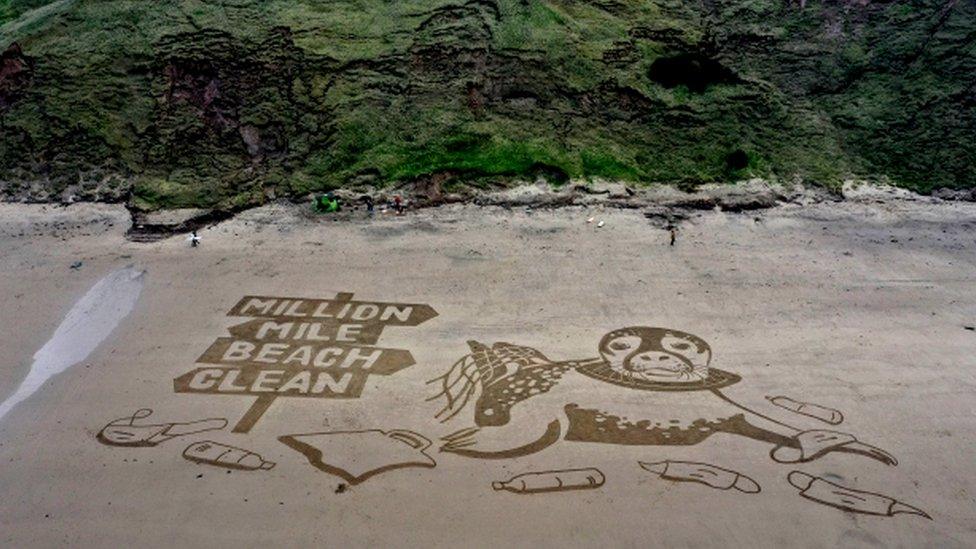
- Published1 July 2019
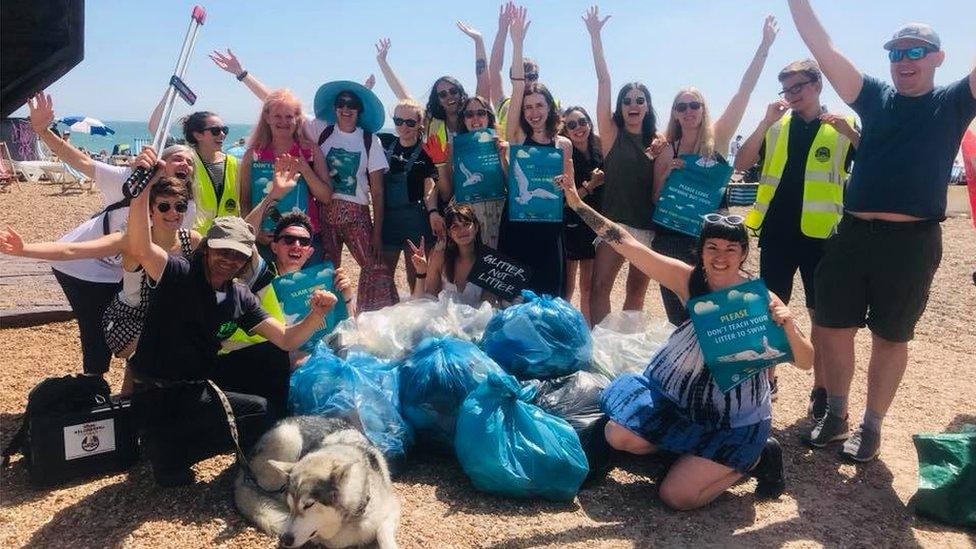
- Published4 August 2019
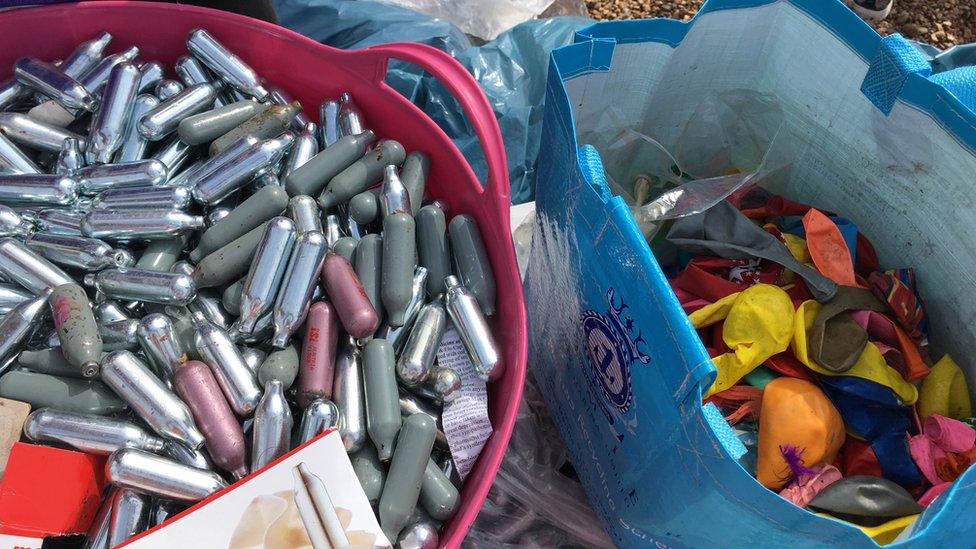
- Published24 April 2014
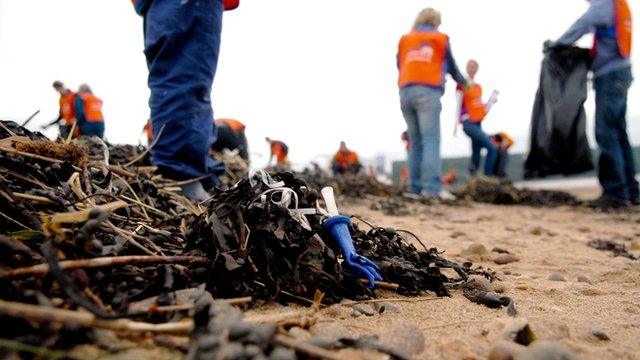
- Published21 August 2012
